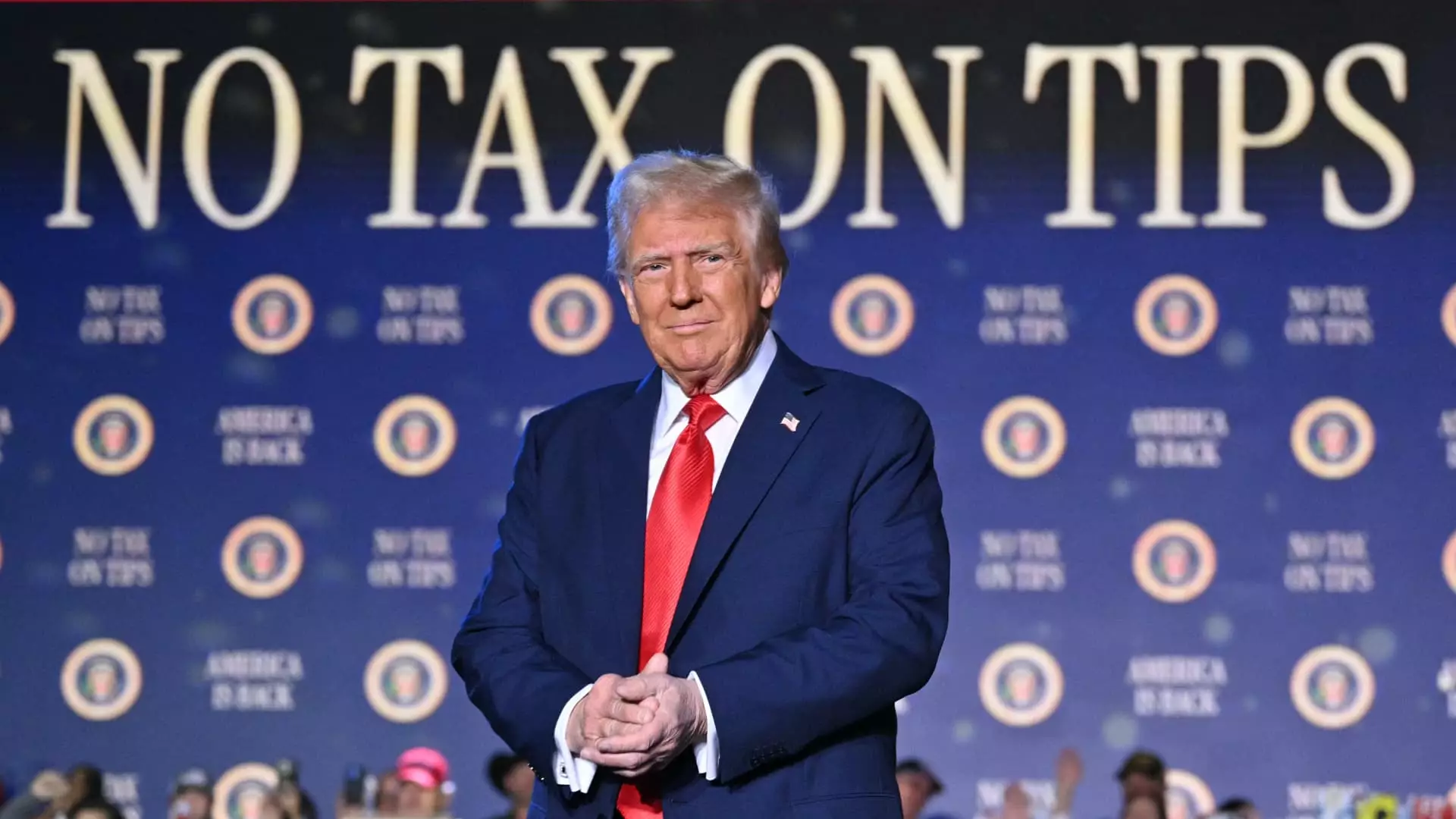The recent legislative move by President Donald Trump, dubbed the “big beautiful bill,” has generated buzz — not necessarily because of its substance, but due to the hollow promises it dishes out. Among its provisions, the so-called “no tax on tips” policy appears to promise a direct benefit for millions of workers. But in reality, this measure masks a far more complicated, and potentially unjust, landscape of tax policy and labor rights. Offering a deduction capped at $25,000 from 2025 through 2028, the provision gives an illusion of financial relief without fundamentally addressing the underlying issues that plague tipped workers or the complexities of taxation.
This policy, cloaked in a terminology that suggests unmitigated exemption from taxes, actually fails to deliver in practice. It sidesteps the real economic burdens faced by workers in hospitality, entertainment, and gig economies — groups that often rely heavily on tips to survive. Instead of simplifying or reducing their tax liability directly, it offers a modest deduction that still leaves many questions unanswered about who qualifies and how substantially they will benefit. Such half-measures risk superficial appeasement rather than meaningful reform, betraying a tendency to prioritize optics over substance in recent legislative efforts.
The Disparity Between Promise and Reality
At face value, the legislation sounds generous: “no tax on tips.” But a closer look reveals it is primarily a tax deduction, which only marginally alleviates the overall taxation burden. This distinction is critical; tips remain taxable income, still subject to payroll, payroll taxes, and state taxes. The cap of $25,000 restricts the benefit, effectively limiting its impact to a relatively small slice of the population. Moreover, the phase-out beginning at an income level of $150,000 further ensures that wealthier tip earners won’t reap much of the benefit, raising questions about whether this policy truly targets the workers most in need.
One must also consider the ambiguous language and the pending clarification from the IRS. The criteria for qualifying occupations remain hazy, and the inclusion or exclusion of certain tip types — like mandatory service charges versus voluntary tips — complicate the narrative. This uncertainty reveals a broader issue: policymakers are often quick to craft legislation that sounds appealing but leave key implementation details vague, shifting the burden of interpretation onto administrative agencies and workers alike. By doing so, they risk creating a landscape rife with confusion and inequality, where the most vulnerable are left uncertain of their rights and benefits.
The Unspoken Crisis of Tip Reporting and Inequality
Beyond the legislative intricacies lies a pressing social problem: the widespread underreporting of tips. Many workers, especially in service industries, operate in informal environments where tips are often hidden or unrecorded. This gap between the law and reality underscores the unjust reality that the very system designed to support workers can perpetuate economic disparities.
The legislation’s reliance on voluntary reporting and the assumption that tips are always properly reported is largely optimistic. In practice, workers frequently underreport tips for fear of penalization or due to lack of proper documentation. This creates a paradox: the policy assumes compliance, yet the system historically incentivizes dishonesty or neglect, which diminishes the potential benefits altogether.
Furthermore, the policy’s focus on gig economy transactions and third-party reporting forms like 1099s highlights an industry’s shift that’s not necessarily aligned with fair labor standards. The thresholds for reporting are moving, but enforcement and transparency lag behind. This dissonance reveals a system that is often reactive rather than proactive, tackling issues after damage has been done rather than preventing systemic problems of underpaid and underprotected workers.
Why This Policy Reflects a Broader Bias in Tax and Labor Legislation
What this legislation uncovers about our political and economic priorities is telling. It demonstrates how policymakers often craft policies that appear equitable but are, in fact, shaped by a deeper bias towards protecting industry interests over worker welfare. The focus on deductions and reporting thresholds benefits higher-income earners and corporations more than the frontline workers who rely on tips for their livelihood.
This approach perpetuates a form of structural inequality, giving the illusion of support while reinforcing existing disparities. A more equitable policy would confront the core issues of underreporting, fair wages, and labor protections — instead of packaging superficial relief in tax deductions that ultimately do little to change tangible economic realities faced by tipped workers.
By framing the debate around complicated tax loopholes and legislative technicalities, policymakers sidestep meaningful reforms that could reset the balance of power. The risk is that the “no tax on tips” myth continues to obscure the need for comprehensive rights-based reforms — like transparent wage laws and proper enforcement — that would truly empower workers rather than merely offering vague and limited deductions.

